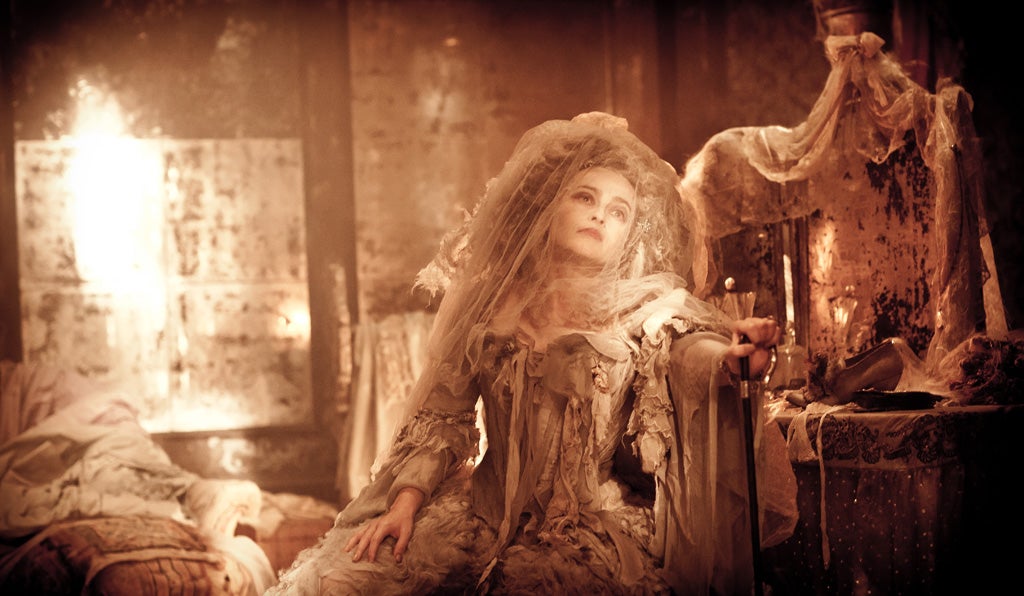First night review: Great Expectations, Toronto Film Festival

Your support helps us to tell the story
From reproductive rights to climate change to Big Tech, The Independent is on the ground when the story is developing. Whether it's investigating the financials of Elon Musk's pro-Trump PAC or producing our latest documentary, 'The A Word', which shines a light on the American women fighting for reproductive rights, we know how important it is to parse out the facts from the messaging.
At such a critical moment in US history, we need reporters on the ground. Your donation allows us to keep sending journalists to speak to both sides of the story.
The Independent is trusted by Americans across the entire political spectrum. And unlike many other quality news outlets, we choose not to lock Americans out of our reporting and analysis with paywalls. We believe quality journalism should be available to everyone, paid for by those who can afford it.
Your support makes all the difference.Do we really need another film of Charles Dickens’ picaresque tale even in this bicentennial year?
It’s a book that is rarely done well in screen adaptations and so directors always seem to feel that they can do it better. Mike Newell is the latest to take a stab at adapting the novel and it’s a mixed bag.
Newell does a good job of condensing the essentials of the book into two hours of screen time. We see Pip as a poor young orphan surprisingly being turned into an aristocrat when a mystery benefactor comes to his rescue. The condition of taking the money is that he doesn’t try to discover the identity of the benefactor.
Pip suspects that Miss Havisham, a wealthy spinster is the benefactor in question and believes that this donation is part of a master plan for him to marry her adopted daughter Estella.
David Nicholls’ script plays up the mystery elements of the novel. The central question of the identity of the benefactor constantly irks Pip.
It’s the casting of Helena Bonham Carter as Miss Havisham that is the winning move of this adaptation. She’s a younger Miss Havisham than we usually see depicted on screen.
Bonham Carter is an actress who excels at playing protagonists on an emotional edge and thus Havisham is a character perfectly suited to her strengths as an actress: a gothic figure, seemingly always at breaking point, cooped up in a room, wearing lavish costumes and refusing to accept the reality that is around her. Hers is the perfume that permeates the film.
The best sequence is when Miss Havisham reveals how she came to be conned as a young lady, learning on her wedding night that her fiancé was a conman trying to take her money
The flashback sequence is shot with all the fine detail of a Tim Burton adventure. Newell seems far more enthralled by the rise and fall of Havisham than the supposed principal character Pip. When Bonham Carter is on the screen there seems to be no one else in frame.
In a year when female actresses have so far failed to excel in leading lady roles, Bonham Carter is positioned to be in the running come awards season.

Watch Apple TV+ free for 7 days
New subscribers only. £8.99/mo. after free trial. Plan auto-renews until cancelled

Watch Apple TV+ free for 7 days
New subscribers only. £8.99/mo. after free trial. Plan auto-renews until cancelled
Less convincing is Jeremy Irvine as Pip. The War Horse star never convinces as the young man battling feelings of inadequacy. Pip doesn’t convince as a blacksmith and so his transformation to a gentleman is never the great change it is supposed to be as he fails to adequately portray the nuances necessary for such a dramatic climb through the classes. The love story between Pip and Estella is never given enough screen time to work.
The big disappointment is Ralph Fiennes as Magwitch. It’s a rare day that the actor fails to nail a role, but he seems to be going through the motions of playing a convict. At times he seems to be carrying over the same dynamic that he shared with Newell on Harry Potter and the Goblet of Fire.
The set design and period details are fantastic, successfully depicting a dark Dickensian world. Newell has not always had great success when he’s tackled literary adaptations (Love in the Time of Cholera was overblown) but this one is a surprisingly worthwhile addition to the Dickens celebrations and one that lives up to expectations.
Join our commenting forum
Join thought-provoking conversations, follow other Independent readers and see their replies
Comments